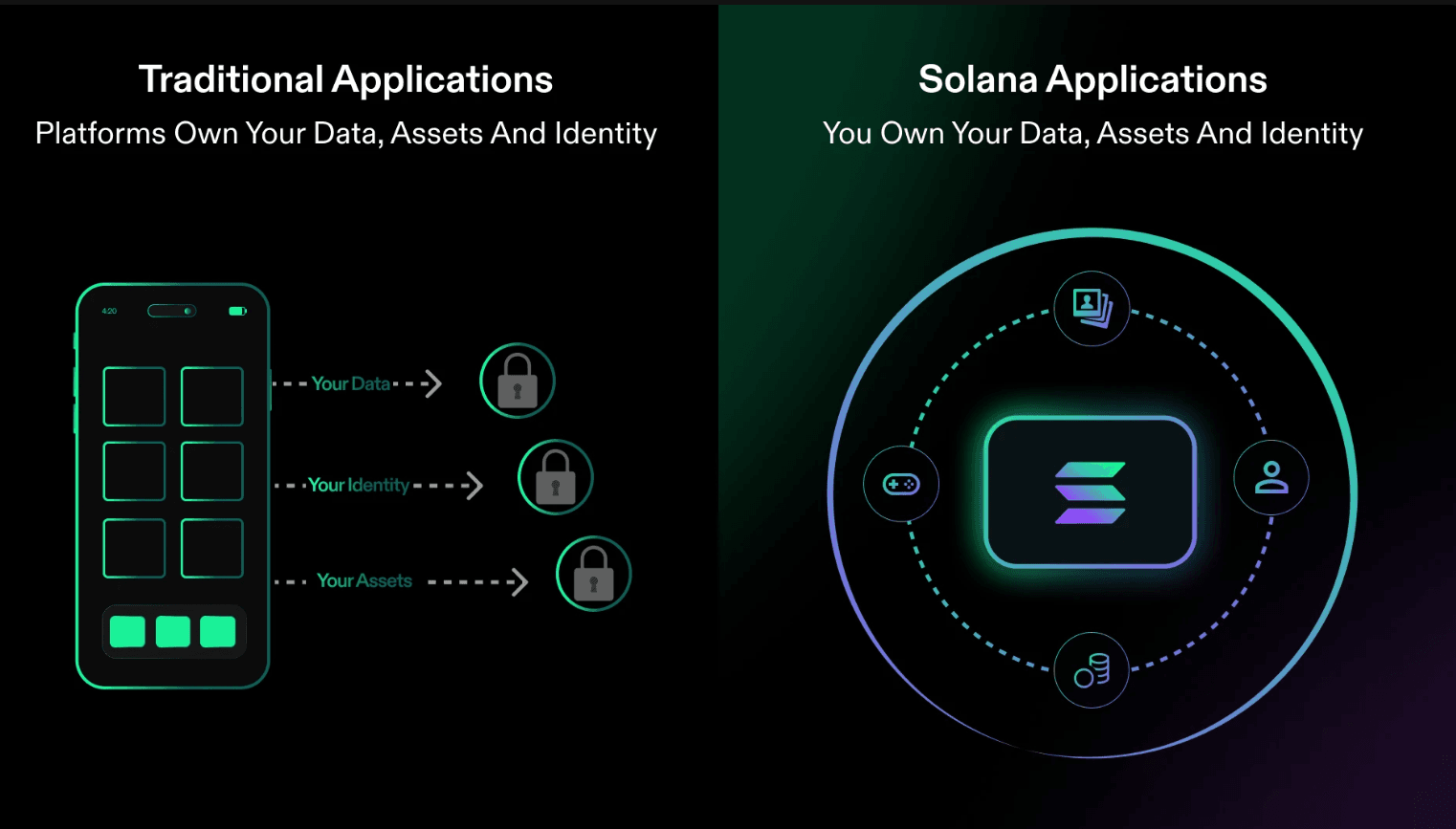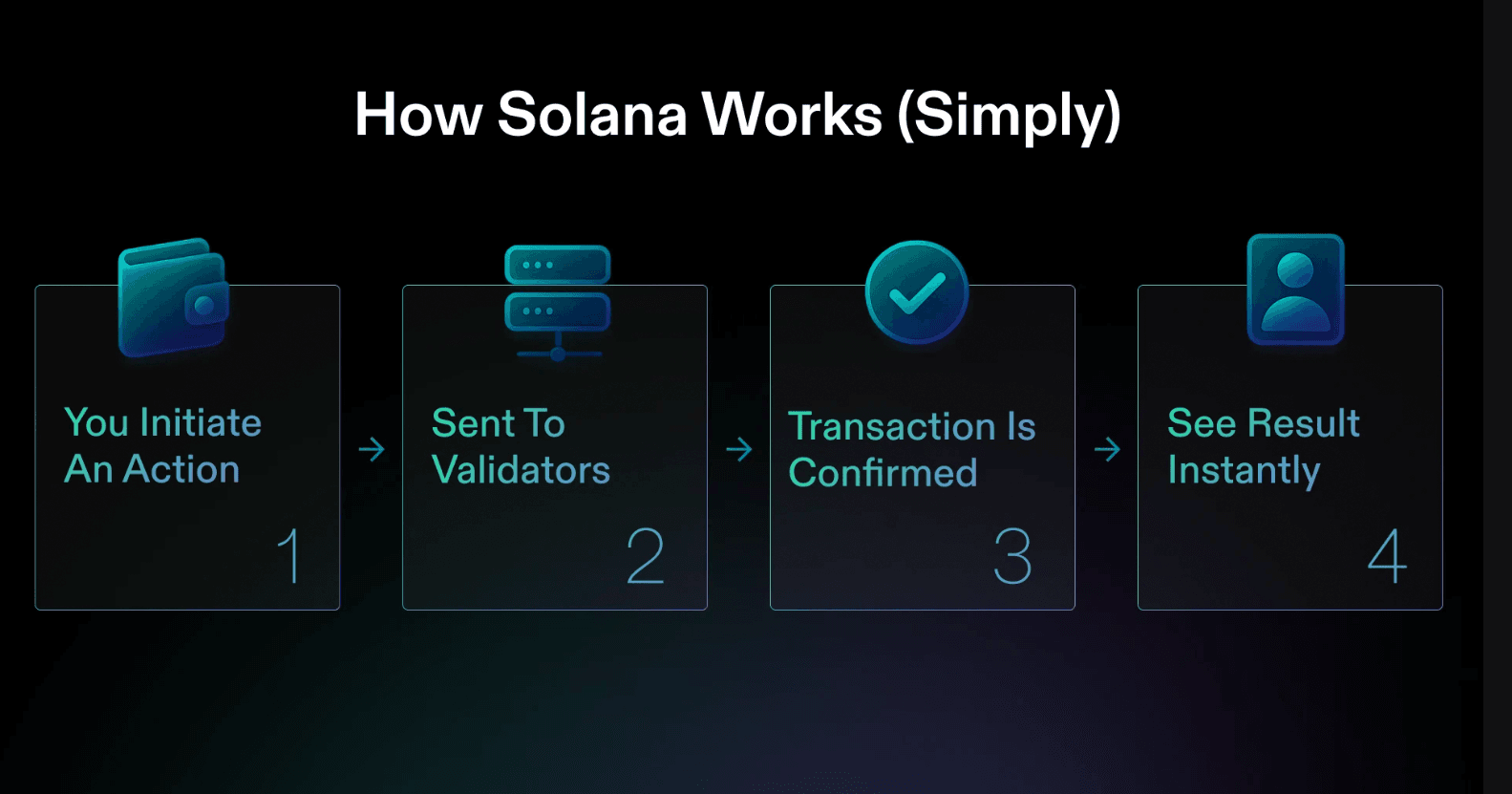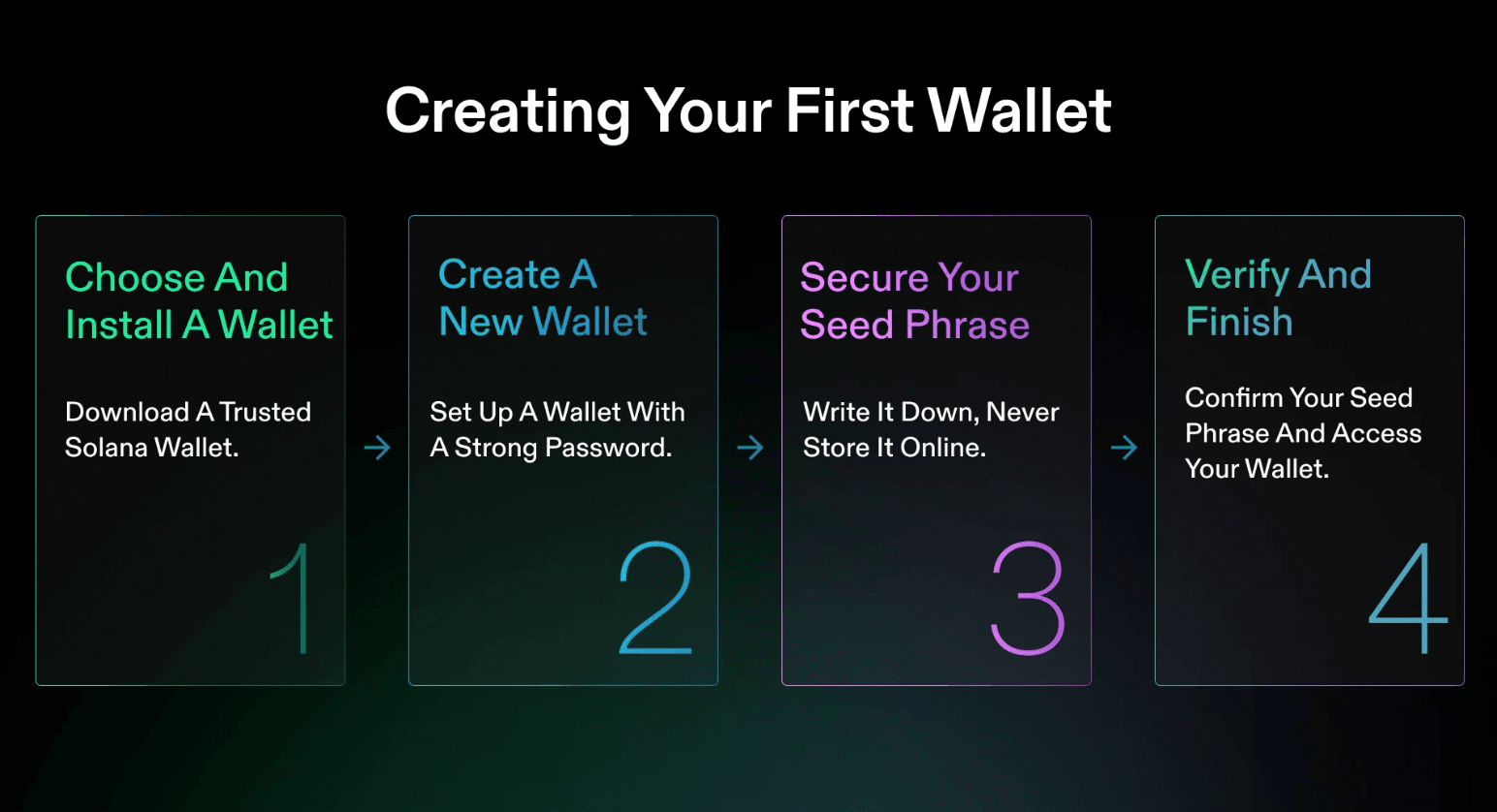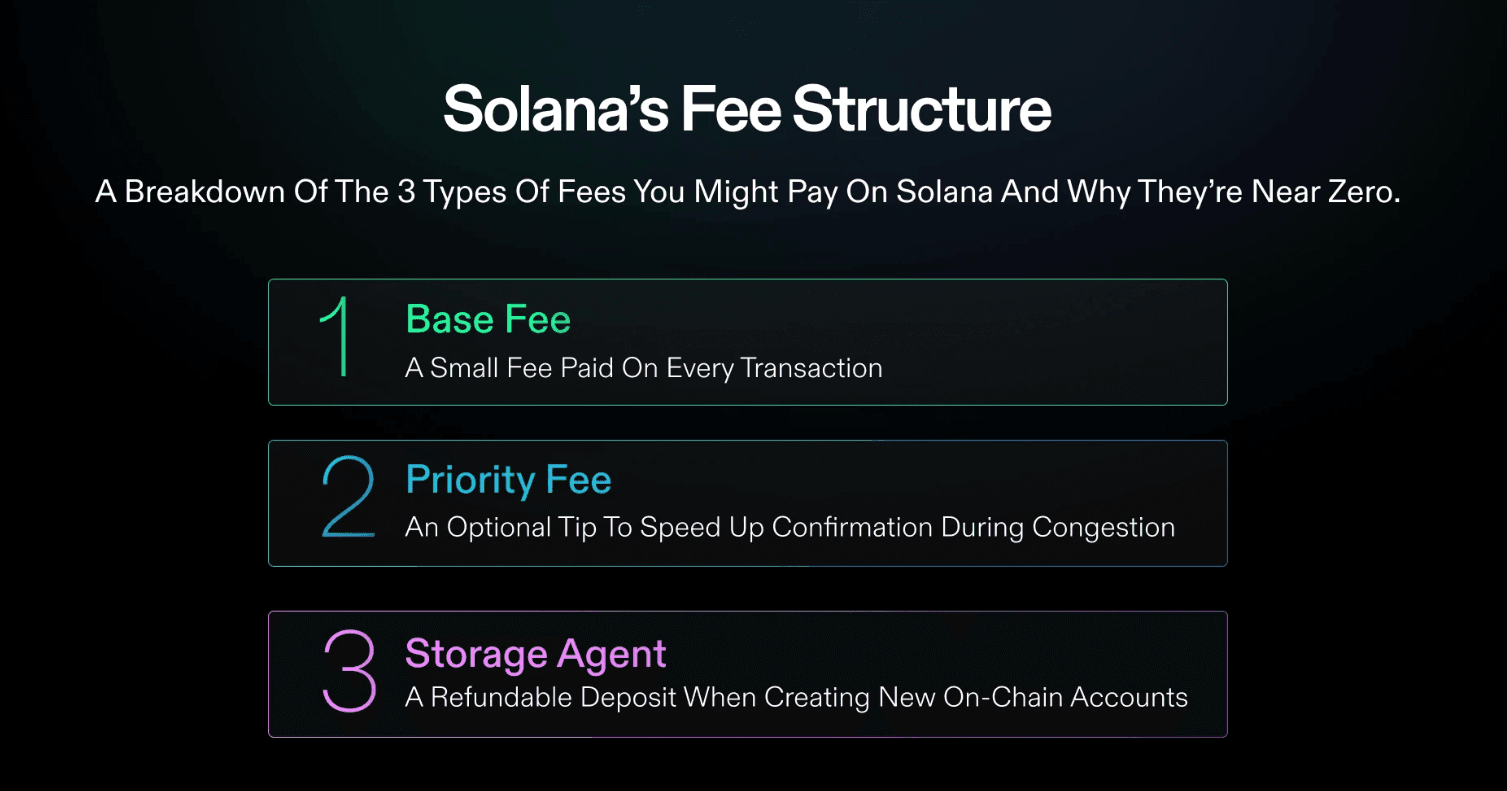business resources
Solana: Revolutionising Blockchain with Speed, Security, and Scalability
15 Oct 2025, 2:00 pm GMT+1
Solana processes over 3,400 transactions per second with fees under $0.001, supporting 29.7 million fee-paying accounts. It powers instant DeFi, NFT, and payment solutions worldwide, designed to be energy-efficient, with a net-zero carbon impact.
Solana is a high-performance network that enables fast, secure, and affordable digital transactions. Founded in 2017 by Anatoly Yakovenko, Solana solves the common problems of slow transaction speeds, high fees, and limited scalability that older blockchains like Bitcoin and Ethereum face. The platform supports decentralised applications (dApps), DeFi platforms, and NFTs, also backed by prominent investors like Andreessen Horowitz and Polychain Capital.
Solana is used by many companies around the world, including Circle, Discord, Google, Meta, Shopify, and Stripe. It has 29.7 million fee-paying accounts and has minted over 340 million NFTs. The platform can process 3,454 transactions per second, with 955 validator nodes ensuring security and decentralisation.
The Solana network is built to support real-world applications, designed to be energy-efficient, with a net-zero carbon impact. For example, XP uses Solana to reduce event ticket fees, while Boba Guys increased sales by 67% using a Solana-powered loyalty program. Homebase successfully tokenised a rental property using Solana, and Hivemapper uses the platform to decentralise mapping. Solana is designed for use in payments, gaming, NFTs, DeFi, and DAOs, making it a versatile platform for growth and innovation.
What sets Solana apart from other Blockchains?

Solana’s unique design makes it a standout in the blockchain ecosystem. The following core features are what differentiate Solana from its competitors:
Speed- Solana’s transactions are confirmed in under a second, far faster than traditional banking systems or credit card transactions, which can take days or seconds, respectively. This speed enables real-time experiences, allowing for quick global money transfers or asset trading without delays.
Cost-Effectiveness- Solana keeps transaction fees as low as $0.00025, making it affordable for frequent or small transactions. This low cost allows for use cases like tipping creators or processing large transaction volumes without losing profits to fees.
Scalability- Solana can handle thousands of transactions per second, ensuring consistent speed and performance even as the network grows. Unlike other systems that slow down during high demand, Solana maintains its speed and affordability at all times.
Global Accessibility- Anyone with internet access can use Solana without the need for a bank account or credit check. This makes it accessible to people everywhere, from major cities to remote areas, ensuring equal access to blockchain technology.
Key products of Solana
Solana offers a variety of products and services that enable developers, businesses, and individuals to leverage its blockchain for different use cases. Here are some of the key products within the Solana ecosystem:
Solana Blockchain
- Core Product: The Solana blockchain itself is the foundation of the ecosystem, offering fast, secure, and low-cost transactions. It is designed to support decentralised applications (dApps), decentralised finance (DeFi), NFTs, and much more, with its high throughput and low transaction fees making it suitable for large-scale adoption.
Solana Pay
- Payments Solution: Solana Pay is a decentralised payment platform built on the Solana blockchain. It allows businesses and consumers to make fast and secure payments using Solana-based stablecoins like USDC. With its near-zero transaction fees and instant settlement, Solana Pay is a highly efficient solution for e-commerce platforms and retail businesses.
Solana Wallets
- Digital Wallets: Solana supports several wallet applications, including Phantom, Sollet, and Solflare, that allow users to store, send, and receive Solana's native cryptocurrency (SOL) and other tokens. These wallets integrate with decentralised applications and NFTs, enabling users to easily interact with the Solana ecosystem.
Solana NFTs
- Non-Fungible Tokens: Solana powers the creation, trading, and management of NFTs. The platform supports artists, creators, and developers in building unique digital assets with low minting costs and fast transaction speeds. Popular NFT marketplaces, such as Magic Eden, are built on Solana, enabling a thriving NFT ecosystem.
Solana DeFi (Decentralised Finance)
- DeFi Products: Solana’s high throughput supports numerous DeFi platforms where users can trade, lend, borrow, and earn yield. Prominent DeFi protocols on Solana include Serum (a decentralised exchange), Raydium (an automated market maker), and Solend (a decentralised lending platform). Solana’s low fees and fast transactions are ideal for enabling these financial services.
Solana Validators
- Network Security and Validation: Validators play a crucial role in the Solana network by confirming transactions and securing the blockchain. Over 1,000 independent validators process transactions, ensuring that Solana remains decentralised and reliable. Validators are rewarded with SOL for their work, helping maintain the network’s security and performance.
Solana Developer Tools
- Developer Tools and SDKs: Solana provides a robust suite of development tools for building on the blockchain. The Anchor framework, Solana Web3.js, and other tools help developers create decentralised applications (dApps) with ease. Solana’s developer ecosystem supports a wide range of languages, including Rust and JavaScript, allowing for easy integration with the blockchain.
Solana SDKs and APIs
- APIs for Integration: Solana offers software development kits (SDKs) and APIs for building applications that interact with its blockchain. These tools enable developers to create custom solutions, including wallets, payment systems, and DeFi protocols, without needing to manage the complexities of blockchain infrastructure.
Solana Program Library (SPL)
- Token and Application Standards: The SPL is a collection of pre-built programs and token standards that simplify the development of decentralised applications. This includes the SPL Token standard, which enables the creation and management of custom tokens on Solana. SPL makes it easier for developers to launch projects and integrate with Solana’s ecosystem.
Solana Foundation Grants
- Support for Developers: The Solana Foundation offers grants to support developers and projects building on the Solana blockchain. These grants help fund innovative applications in DeFi, NFTs, gaming, and other sectors, contributing to the expansion and development of the Solana ecosystem.
Solana University
- Educational Support and Innovation: Solana University encourages student innovation through events like the Solana Student Hackathon, where developers and students come together to create solutions on the Solana blockchain. This initiative promotes learning, collaboration, and new ideas, strengthening Solana’s developer community and ecosystem growth.
How does Solana work?

At its core, Solana is a network of computers (also called nodes) that work together to process transactions. Here's how it works:
Step 1: Transaction Initiation- You initiate an action, like sending SOL or interacting with a dApp (decentralised application), from your wallet.
Step 2: Validation by Validators- Your transaction is sent to Solana’s validators, which are independent computers that verify and confirm that the transaction is legitimate.
Step 3: Consensus and Confirmation- Validators reach consensus in less than a second, confirming your transaction and adding it to the blockchain.
Step 4: Instant Confirmation- Once confirmed, the transaction is immediately recorded on the blockchain, and the recipient sees the result in real-time.
This entire process takes mere seconds, allowing for near-instantaneous confirmation of transactions.
How to create your first wallet?

Setting up your Solana wallet is a simple four-step process:
Step 1: Choose and Install a Wallet
- Research popular Solana wallets and pick one that suits you.
- Visit the official website (always double-check URLs).
- Download and install the wallet following the provided instructions.
Step 2: Create a New Wallet
- Open the wallet application.
- Select the "Create a new wallet" option.
- Set a strong password for device access.
- Write down your seed phrase—this is crucial for wallet recovery.
Step 3: Secure Your Seed Phrase
- Your seed phrase is a critical backup for your wallet. Here’s how to protect it:
Do
- Write it on paper and store it securely (preferably in a fireproof safe).
- Keep multiple copies in different safe places.
Don’t
- Screenshot it or store it online.
- Share it with anyone or type it on untrusted websites.
Step 4: Verify and Finish
- Confirm your seed phrase when prompted.
- Once confirmed, your wallet is ready. You will see your wallet address and an initial balance of 0 SOL.
Basic Wallet Features
Modern Solana wallets include several features:
- Asset Management: View token balances, display NFT collections, and monitor transaction history.
- Transaction Tools: Send and receive tokens, swap between different tokens, and connect to applications.
- Security Features: Password protection, biometric authentication (mobile), and transaction warnings.
After setting up your wallet:
- Save your address: Keep it somewhere safe.
- Get some SOL: You’ll need a small amount for transaction fees.
- Practice receiving: Have a friend send you a small amount of SOL.
- Explore the interface: Familiarise yourself with the wallet layout.
Case Study: Helium Network
The Helium Network is a groundbreaking decentralised wireless infrastructure project that allows individuals and organisations to deploy and manage wireless networks through token incentivization. By migrating to Solana, Helium has unlocked numerous advantages, including faster transaction speeds, lower fees, and enhanced scalability.
Key Highlights:
- Decentralised Wireless Coverage: Helium enables users to deploy hotspots that provide wireless network coverage, earning rewards in Helium tokens (HNT) for their participation.
- Transaction Efficiency: Leveraging Solana’s fast transaction processing and low costs, Helium ensures seamless operations for its users, reducing the barriers to participating in decentralised infrastructure.
- Scalable Growth: The Helium Network has rapidly scaled, with over 1 million daily users actively contributing to its decentralised infrastructure.
- Global Impact: With over 30% of the world's roads mapped, the Helium Network is redefining how wireless networks can be built and maintained, using a community-driven approach rather than traditional corporate-managed systems.
Benefits of Solana Integration:
- Low Transaction Costs: By using Solana’s blockchain, Helium ensures that users are not burdened by high transaction fees when interacting with the network, making it cost-effective for everyone involved.
- Fast Transactions: The Solana network’s speed ensures that token rewards and network operations are completed quickly, creating a more efficient system for users.
- Decentralisation at Scale: Solana's blockchain provides a secure foundation for Helium’s rapidly growing infrastructure, supporting its mission of decentralisation with thousands of independent nodes around the world.
By using Solana, the Helium Network has created a unique opportunity for individuals to participate in the growth of global wireless infrastructure while earning rewards. This case study illustrates the power of Solana in supporting decentralised physical infrastructure networks (DePIN) and how it is transforming industries like wireless communication.
Understanding Solana Transaction Fees
Transaction fees are a vital part of any blockchain network, and Solana has designed its fee structure to be both affordable and predictable. These fees are used to compensate validators, prevent network abuse, and prioritise transactions during high traffic periods. What sets Solana apart is its remarkably low transaction costs, which make it an attractive platform for both developers and users.

Solana’s Fee Structure
Solana has three main types of fees:
- Base Fee: Every transaction on the Solana network pays a small base fee. This fee is set at 0.000005 SOL (5,000 lamports), which typically costs less than $0.0005 per transaction. This low cost ensures that even frequent or small transactions are viable.
- Priority Fee: During busy times, users can opt to add a small priority fee to speed up their transactions. Even in high-demand periods, priority fees remain low, typically under $0.01. This ensures that users can still get their transactions processed quickly without paying excessive amounts.
- Storage Rent: For creating new accounts, such as token accounts, Solana requires a small deposit (~0.002 SOL). This rent is refundable when the account is closed, preventing network spam and helping with efficient storage management.
Typical costs for different activities
Here are some common Solana transaction costs:
- Sending SOL or tokens: $0.0005
- Swapping tokens: $0.0005
- Buying an NFT: $0.0005 to $0.10
- Creating a token account: ~$0.20 (refundable)
For comparison, traditional payment systems often charge much higher fees, such as $15-$50 for wire transfers or $5-$10 for stock trades.
How Solana keeps fees low
Solana achieves low fees through its innovative design, including parallel processing and Proof of History (PoH). These mechanisms allow the network to process many transactions simultaneously without requiring extensive communication between validators. This design ensures that costs remain low, even as the network scales.
Share this
Shikha Negi
Content Contributor
Shikha Negi is a Content Writer at ztudium with expertise in writing and proofreading content. Having created more than 500 articles encompassing a diverse range of educational topics, from breaking news to in-depth analysis and long-form content, Shikha has a deep understanding of emerging trends in business, technology (including AI, blockchain, and the metaverse), and societal shifts, As the author at Sarvgyan News, Shikha has demonstrated expertise in crafting engaging and informative content tailored for various audiences, including students, educators, and professionals.
previous
How Technology and Data Are Building More Resilient Retail Networks
next
What Are the 7 Best Distance Learning Apps for 2025?